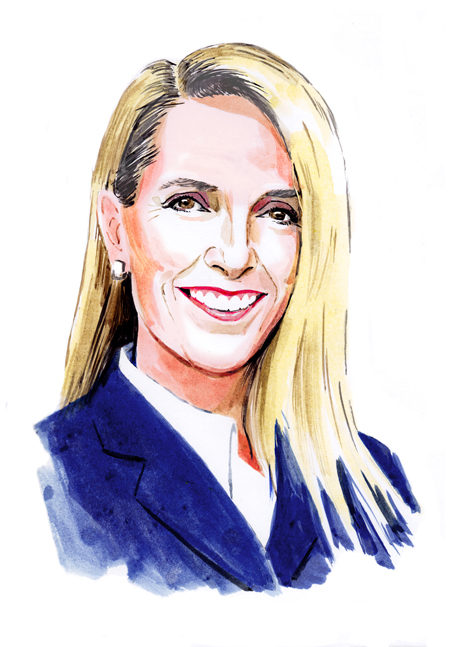
Illustration by Dan Williams
The questions we fail to ask are the ones that will get us into trouble. Make time for smarter questions, not more. Balance question styles and types so that key questions are not missed.
These are my top three takeaways from “The Art of Asking Smarter Questions” (Harvard Business Review, May/June 2024). The article is a foundation for our “I See That Hand” webinar and our board development curriculum, both led by Wise Stewards Project Director Rebekah Basinger, that explores the importance of asking better questions. We’re embedding this discipline in all our In Trust Center work.
New ideas, advances in technology, shifting landscapes, and expanded grant opportunities demand that we consider new questions. The HBR article notes that most of us are overly attached to some types of questions at the expense of others, and suggests five question domains to expand our range of inquiry in a time that demands it. More than ever, leaders must consider a wide range of why, what, and how much, but also so what and what’s the impact?
Consider these questions as you read this issue.
What trends are you tracking and how do you make sense of them in your context?
Questioning what a trend means within your context is key to addressing its utility. Association of Theological Schools (ATS) Executive Director Frank Yamada and I recently joined the “Good Governance” podcast to explore the state of theological education (p. 20). Consider the article for your next meeting, and invite questions.
How might your school leverage Artificial Intelligence? What’s pressing you forward? What’s keeping you from exploring it?
Questions about AI and theological education run the gamut from possibilities for creativity and efficiency to consequences of machine learning on humanity. AI is not new; in 2018, we received our first Resource Grant application on AI and theological education; seven years later, we are still exploring this exciting, if often fraught, topic. I invite you to join “F[AI]thfully Co-Creating,” an online series exploring AI, from the In Trust Center, ATS, and Atla.
Acadia Divinity College is leading the way in engaging AI – not necessarily embracing it, but thinking about its impact on mission and the field broadly. President Anna Robbins shares the vision (p.16).
Spoiler alert: She has, as might be expected, more questions than answers.
Amy L. Kardash, President